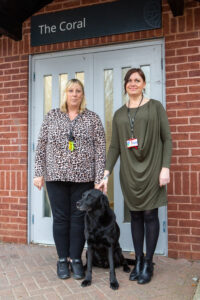INCLUSION & PASTORAL SUPPORT
Bottisham Village College is an inclusive school, with a significant number of students with a range of additional needs.
The Assistant Principal for Well being and Inclusion oversees the inclusion team, who provide support for students and teachers within lessons as well as extra provision to enable highly individualised timetables.
Provision
Working alongside teachers, teaching assistants provide support for students within lessons, enabling progress in learning and inclusion with their peers.
Teachers work closely with the Inclusion team to identify children who may have additional needs. For those children who need extra support, a range of extra provision is offered, which may include the following:
- specialist dyslexia programmes;
- intensive literacy and numeracy catch-up programmes;
- study support, which may include prior learning and consolidation and supported homework;

- sensory exercise programmes with input from physiotherapists and occupational therapists;
- communication programmes, with input from speech therapists;
- horticulture lessons,
- life skills activities in the local community and in the food technology rooms
- resilience programmes to help boost self esteem and foster good relationships
- A nurture provision, for students to develop their confidence and social skills, as well as working on targeted interventions
- ELSA therapy sessions to support social and emotional resilience
- Access to bereavement and YMCA counselling in school
- Cassie canine therapy sessions and school based therapy dogs
Resources
The Learning Support base includes a suite of rooms for small group learning and support, during lessons and break and lunch times. ICT resources include computers and laptops, with various literacy and numeracy programmes and interactive whiteboards. There is a wealth of schemes, games and equipment to support students with a range of special educational needs.
Alternative Provision
At Bottisham, we are committed to meeting the needs of every child. We work closely with the Education Inclusion Officer of the Local Authority to provide a suitable curriculum for those few students who are unable to access a mainstream education.
Pastoral Care
We take care to make sure that individual students and families have positive relationships with staff. Form tutors in each year group work as a team led by a Head of Learning, who is responsible to a member of the College Leadership Team (CLT). These members of staff have overview for the well being of all students: their attendance, behaviour and progress. As a result they form close links with parents/carers. When necessary, Heads of Learning and members of CLT work closely with outside agencies, such as the District Team and the Educational Psychologist.
The pastoral support workers are experienced, full time members of staff who support students in a variety of ways: Transition; work experience placements; transport issues; organisation; anxieties or just a shoulder to cry on if a student is having a bad day, helping them get back on track.
On occasion students may need more targeted support – we have two Nurture / Emotional literacy practitioners who deliver evidence based social and emotional interventions. These take place in the Coral, our nurture department.
We also employ a counsellor from the YMCA who is in school twice a week. When more intensive support is needed, referrals can be made for individual counselling sessions.
District Team
We work closely with the Bottisham, Burwell and Soham District team. They provide a range of support services for children, young people and families in the regions listed. Their staff have a wide range of skills, knowledge and experience and can also access a range of support services should they be needed beyond the District team. The team have a variety of roles including:
- making sure students attend college regularly and punctually;
- working on an individual basis with students who need extra support;
- offering support to parents with children of all age;
- supporting young people (11-19) with information and advice about social and personal development opportunities;
- work with students who have social, emotional or behaviour problems.
- Our police prevention team also work alongside families and the school in a number of ways to ensure our young people have the information and support they need in difficult situations.
Safeguarding
We are committed to providing a safe and welcoming environment where children are respected and valued.
Parents/carers should know that the law requires all college staff to pass on information which gives rise to a concern about a child’s welfare, including risk from neglect, physical, emotional or sexual abuse. The staff will seek to discuss any concerns with the parent/carer, and routinely inform them of any referrals to outside agencies. In exceptional circumstances, a referral may be made without the knowledge of the parent/carer, for example, where such discussion would put the child at increased risk of significant harm.
In accordance with local information sharing protocols, we will ensure that information is shared securely and sensitively. Information will only be shared with other services where it is deemed necessary and proportionate to ensure that children and young people are safe and receive the right service.
The college will seek advice from Social Care when they have reasonable cause to suspect a child may be suffering or likely to suffer significant harm. Occasionally, concerns are passed on which are later shown to be unfounded. Parents/carers will appreciate that the member of staff in the college with responsibility for child protection (known as the Designated Person for Child Protection) is carrying out their responsibilities in accordance with the law and acting in the best interests of all children.
Sex and Relationships Education (SRE)
Sex and Relationships Education (SRE) is provided in accordance with the policy agreed by the governors. It is taught throughout the college as part of the Science and PSHE curriculum. The aim is to encourage students to become well-informed young adults who are sensitive to others and take responsibility for their own lives.

